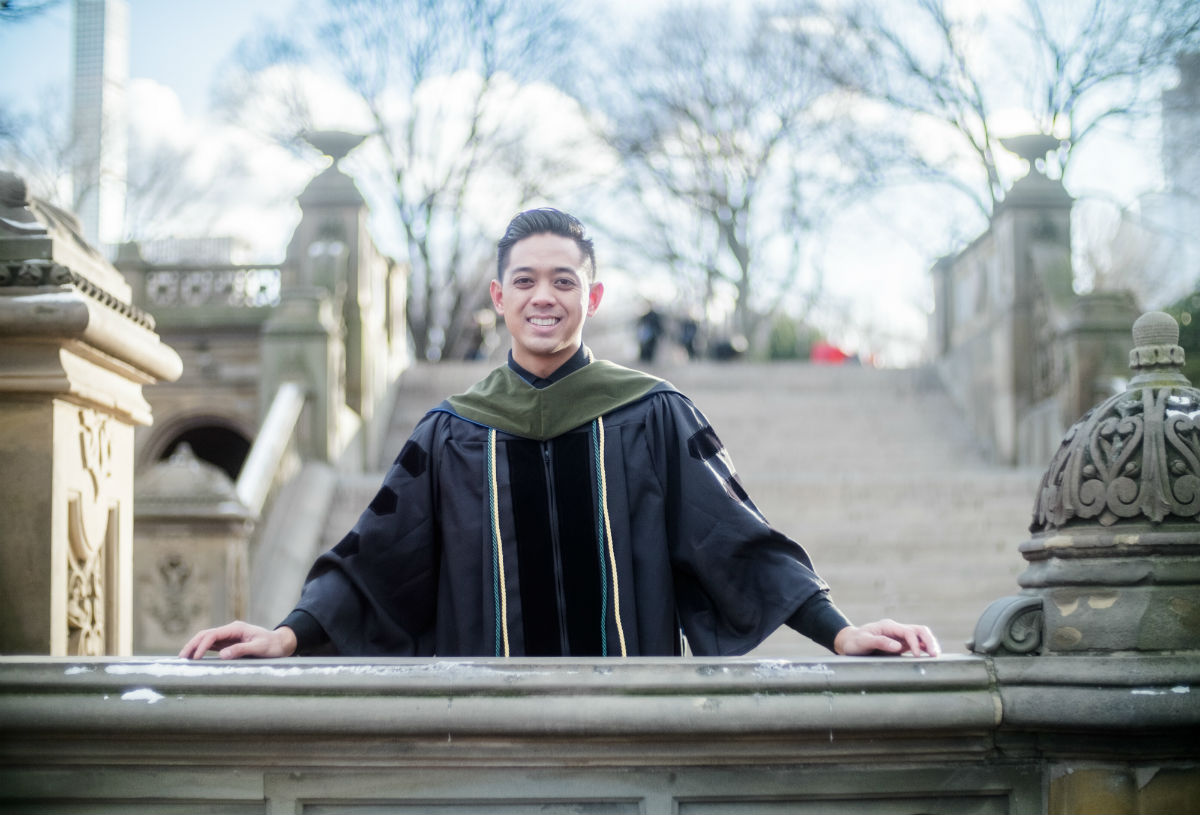News
Up Close with Soon-to-be-Pharmacist, Chris Mendoza
Touro Talk Catches Up with Chris to Learn About his Interest in Public Health and What this Prestigious Residency Means

Chris Mendoza, who will receive his Doctor of Pharmacy in May 2016, dreamed of becoming a federal pharmacist--and he is now officially a federal pharmacy resident of the United States Department of Health and Human Services! Chris will be stationed in Gallup, New Mexico, one of the top clinical sites within the Indian Health Service.
Public health excites me because: Being a public health pharmacist will enable me to not only have an impact on a single patient's life, but to advance the nation's health by providing care to communities and societies that have minimal access to health care and essential medications. The pillars of public health have remained at the central core of why I wanted to become a pharmacist.
This residency will be game-changing for my career because: I will be working mostly in pharmacist-run clinics where I will be able to have more of an impact on my patient's health care. The Indian Health Service is known to be pioneers in advancing the profession of pharmacy. In this capacity I will be able to work in an expanded scope of clinical pharmacy where I will be able to prescribe and alter drug regimens to better serve the patient.
Additionally, since this residency program is under the United States Department of Health and Human Services, I will be a uniformed officer of the federal government.
What I like most about the pharmacy profession is: The wide variety in career opportunities and professional settings where pharmacists can work. The PharmD degree is very versatile—one can work in the pharmaceutical industry or in retail or hospitals. Under the Health and Human Services, after my year of postgraduate training, I can either stay with the Indian Health Service, or switch gears and go work for another agency such as the Food and Drug Administration (FDA), the Centers for Disease Control and Prevention (CDC), or the National Institutes of Health (NIH), to name a few.
The skill I never realized I’d need: The ability to prioritize effectively. Pharmacists in the field are constantly bombarded with various responsibilities that they must attend to. Being able to prioritize duties is definitely a skill that one has to learn and hone down to a science.
My professional role model is: I picked two--Rear Admiral Scott Giberson and Rear Admiral Pamela Schweitzer. Dr. Giberson was the past Chief Pharmacist of the United States and Dr. Schweitzer is the current Chief Pharmacist of the United States, a position I hope to one day attain. Both of these people have done so much to advance the profession. They were instrumental in advocating for provider status, so that pharmacists can practice to the height of their licenses.

